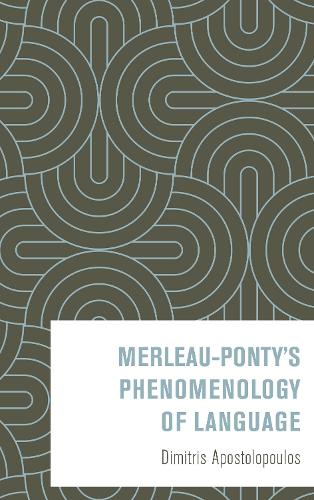
Merleau-Pontys Phenomenology of Language
(Hardback)
Publishing Details
Merleau-Pontys Phenomenology of Language
By (Author) Dimitris Apostolopoulos
Bloomsbury Publishing PLC
Rowman & Littlefield International
6th September 2019
United Kingdom
Classifications
Professional and Scholarly
Non Fiction
Philosophy of language
418.0201
Physical Properties
Hardback
326
Width 160mm, Height 237mm, Spine 29mm
671g
Description
Merleau-Pontys status as a philosopher of perception is well-established, but his distinctive contributions to the philosophy and phenomenology of language have yet to be fully appreciated. Through detailed, clear, and accessible analyses of Merleau-Pontys views of linguistic meaning, expression, and understanding, and by tracing the evolution and development of these views throughout the course of his philosophical career, Merleau-Pontys Phenomenology of Language offers a global and comprehensive picture of his engagement with the philosophy of language. This book demonstrates that the phenomenology of language is essential for grasping the meaning and motivations behind some of Merleau-Pontys most celebrated philosophical contributions. It argues that his philosophy of language should take on a central role in our appraisal of the development and basic goals of his thought. And it suggests that the success of phenomenologys return to the things themselves must be judged not only by the evidence of intuition, but also by the labour of expression.
Reviews
Dimitris Apostolopouloss impressive book traces the significance of language and expression to all of Merleau-Pontys oeuvre, both early and late. Somewhat counter-intuitively, he convincingly shows that philosophy of language is first philosophy for Merleau-Pontys phenomenology. This rethinking of the work of Merleau-Ponty is a must read for all those philosophers interested in phenomenological reflection and writings. -- Jack Reynolds, Professor of Philosophy at Deakin University, Melbourne
Author Bio
Dimitris Apostolopoulos gained his PhD in Philosophy from the University of Notre Dame, and is currently Assistant Professor of Philosophy at Nanyang Technological University. His research focuses on European philosophy, especially phenomenology, aesthetics, and hermeneutics, and has appeared in venues like the European Journal of Philosophy, the British Journal for the History of Philosophy, Research in Phenoitris Apomenology, and the Journal of the British Society for Phenomenology. His teaching interests extend to European philosophy and the history of Western philosophy.
